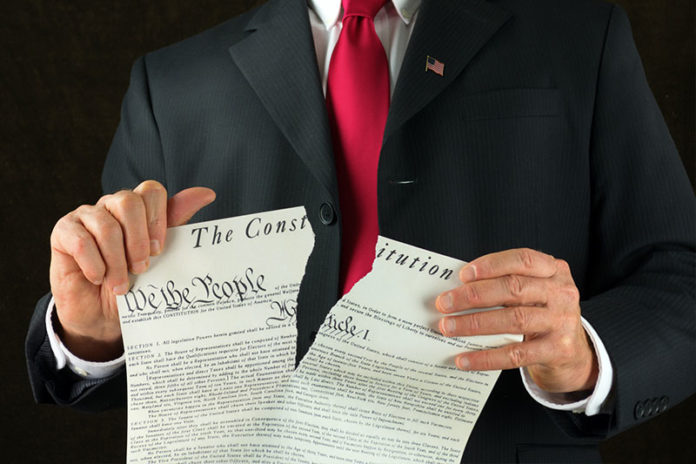Cherry Blossom season approaches our nation’s capital, the Congress remains gridlocked, and Robert Mueller, the latest “special counsel,” continues his free-wheeling search to unearth “Russian collusion” armed with a limit-free credit card. All the while, the most recent mass murder involving a firearm fans the flames of gun-control ire from the state legislature in Tallahassee, Florida to Clarksburg, West Virginia (home of the National Instant Criminal Background Check System, or NICS).
Amidst all these goings on, President Trump continues to display his unique understanding of our Bill of Rights. Last week, during a televised meeting with Republican congressional leaders about the February mass shooting in Parkland, Florida, the President declared that the notion of “due process” is little more than a footnote to the United States Constitution.
The President’s view notwithstanding, the principle of due process – that a citizen is absolutely entitled to his or her “day in court” before the government may take action against them – is a bedrock of our representative democracy. This is the case whether one considers a special counsel attempting to gather evidence against a person believed to have broken the law; or a federal agent seeking to deny someone their constitutionally-guaranteed right to possess a firearm.
Imagine for a moment, how large would be the crowd of defendants facing charges initiated by Mueller, in addition to Trump’s former campaign manager Paul Manafort, if the Special Counsel could — to paraphrase Trump – “arrest now, give due process later.” Manafort would have plenty of company.
It is to be hoped that the concept of due process being afforded an individual who has chosen to exercise their freedom guaranteed by the Second Amendment, will not fall victim to changes now being considered in Washington and state capitals across the country. The primary vehicle that could be employed to do just this, is the so-called “gun violence restraining order.” Such a process has been proposed as a way to keep firearms out of the hands of persons prone to abuse them. It can be a legitimate procedure; but one that must be very carefully considered and explicitly limited.
Unfortunately, the importance of “due process” in this regard — applied to a person arguably mentally unstable or, in the words of current federal law, someone who has “been adjudicated as a mental defective” — is not so easy to discern.
For example, does the term “mental defective” encompass any person who requires assistance in handling their finances – a view embraced by the Obama Administration? Is it more narrowly circumscribed to include only persons mentally incapable of standing trial? Or veterans undergoing counselling for depression?
Trump’s off-handed remark that if a person is considered by someone – perhaps anyone – to be “crazy,” the government could immediately and unilaterally confiscate any firearms and “weapons” to which he or she might have access, plays straight into the hands of the modern gun-control movement. That movement is founded on the notion that the government has a fundamental responsibility to protect the citizenry from gun violence, and that this responsibility trumps all other rights guaranteed in the Bill of Rights.
We all will benefit if it is the Senator’s understanding of due process, and not the President’s, that prevails in that debate.





























